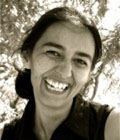Understanding Frames
Overview
Standing frames are likely to be considered as part of postural management for children and young people with Cerebral Palsy. A standing frame may reduce risks of joint contractures, hip dysplasia and scoliosis. It may improve bone mineral density and increase the likelihood, as a non-ambulant adult, of independent ability to stand and transfer. It may reduce pain and make daily care easier. Enabling the child to be vertical, a standing frame may improve head and trunk control, fine motor skills, gastrointestinal, bladder and respiratory function and increase self-esteem and social, communicative and exploratory participation. However there are significant cost implications of use and also reported negative effects: some children experience discomfort in standing frames and families and education staff describe practical difficulties in their use.
Synthesis of the literature and consultation with clinicians, therapists, educational staff, children and their families identifies clinical equipoise in standing frame use, justifying the need for further study. Furthermore there is a need to understand better the impact of interventions at different stages throughout the life course in individuals with long-term conditions, with respect to participation, quality of life and self-esteem, rather than simply changes in body structure and function.
The overall purpose is to answer the question: What is the likely acceptability of a future trial to determine the efficacy of standing frames? To do this, we plan to undertake two surveys and qualitative research in order to identify current use of standing frames and to assess the feasibility and inform the design of a trial (or trials) of standing frame use for children with cerebral palsy (CP).
Who is involved in this Study?
The Chief Investigator for this study is Dr Jill Cadwgan (previously Kisler)
The Principle Investigator at Newcastle is Dr Anna Basu
Anna Basu
- NIHR Career Development Fellow
- Honorary Consultant Paediatric Neurologist
- Email: anna.basu@ncl.ac.uk
- Tel: 0191 282 1375
- Studies: E-SALT; eTIPS; Understanding Frames
- Recently Completed Studies: Fun 'n' Games
Also involved in the project from the Neurodevelopment and Disability Team are:
Allan Colver
- Professor of Community Child Health and Strategic Research Advisor
- Honorary Consultant Paediatrician, Northumbria Healthcare NHS Foundation Trust
Niina Kolehmainen
- Senior Clinical Lecturer
- Honorary Consultant AHP (Children)
Jeremy Parr
- Clinical Senior Lecturer, Newcastle University
- Honorary Consultant Paediatrician, Newcastle upon Tyne Hospitals NHS Foundation Trust
Jane Goodwin
- Research Associate
Johanna Smith
- Research Associate
And from outside the team are:
- Sarah Crombie (PI, Chailey Clinical Services)
- Denise Howel (Senior Lecturer, Newcastle University)
- Andrew Roberts (PI, Oswestry Pain Management Programme)
- Jan Lecouturier (Researcher, Newcastle University)
- Elaine McColl (Professor; Director, Newcastle Clinical Trials Unit, Newcastle University)
- Keith Miller (Oswestry Pain Management Programme)
More information
Website: research.ncl.ac.uk/understandingframes
Email: ann.payne@ncl.ac.uk
Twitter: @UnderstandFrame
Call: 0191 282 5966
Other research
Understanding Frames sits within the 'Effects and acceptability of interventions' research theme as well as the 'Clinical service development' and 'Engaging young people and familes' reserach themes.
If you are looking for research linked to Cerebral Palsy incl. Hemiplegia, please view the relevant conditions and topics page for a full list of studies.
